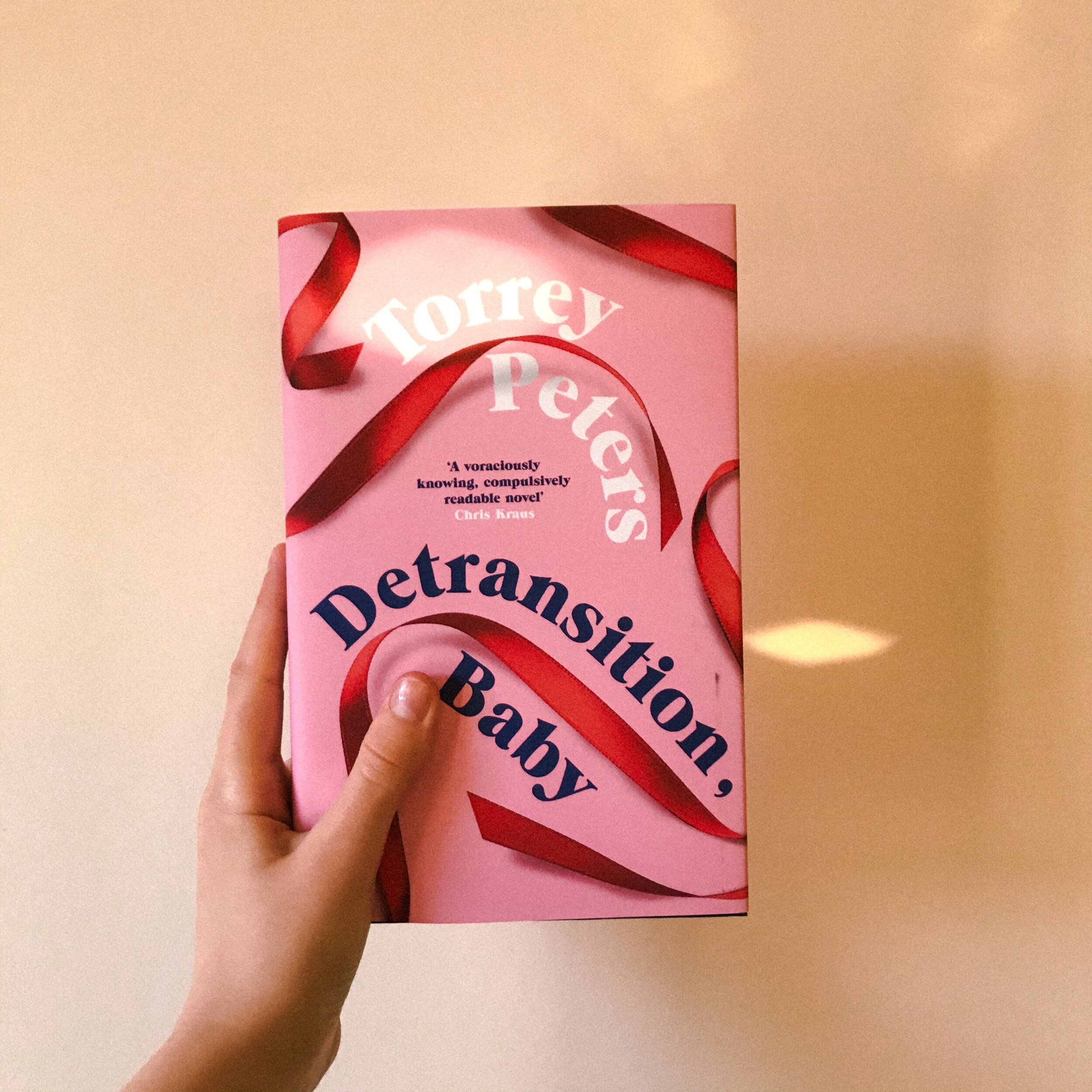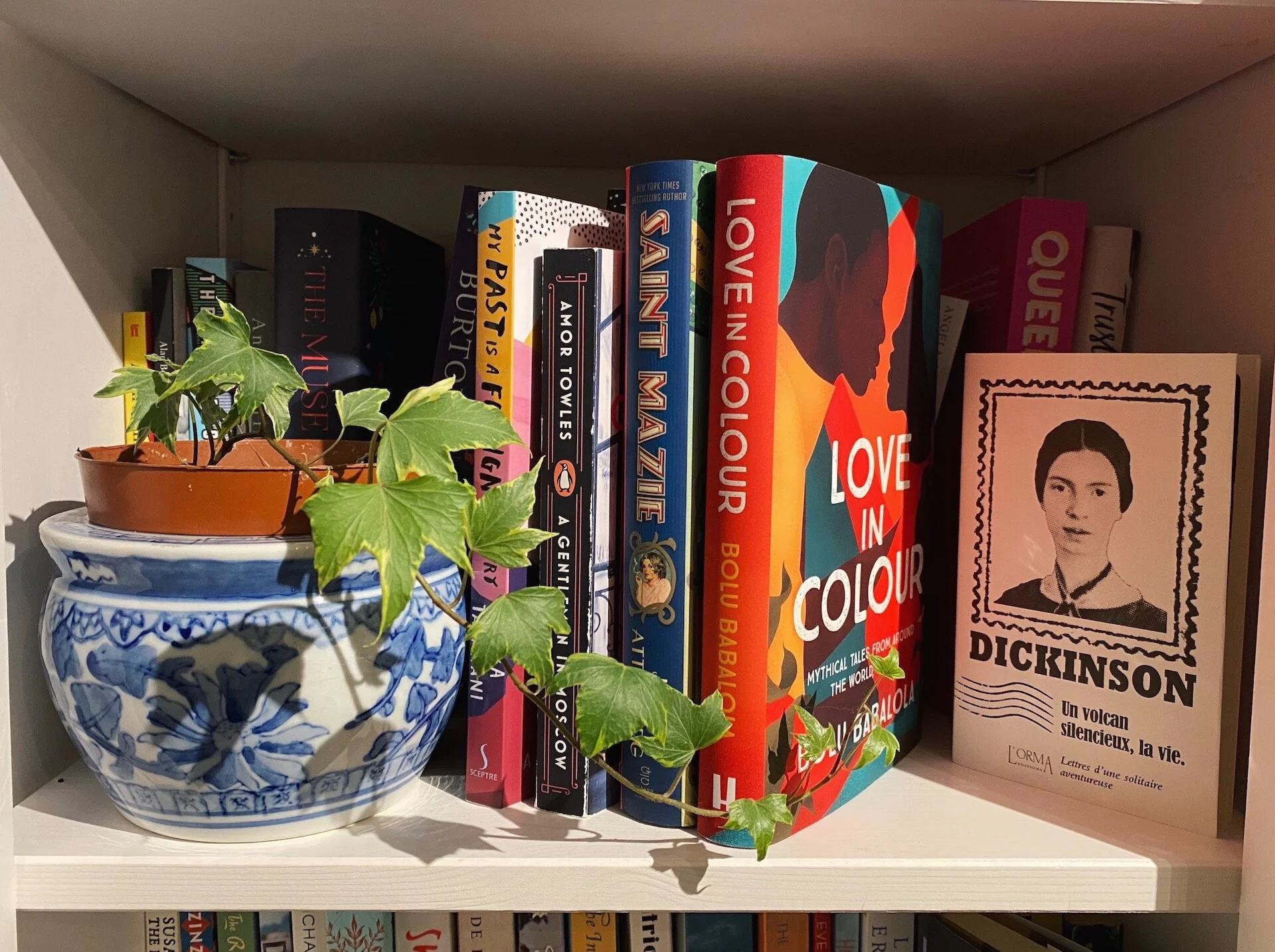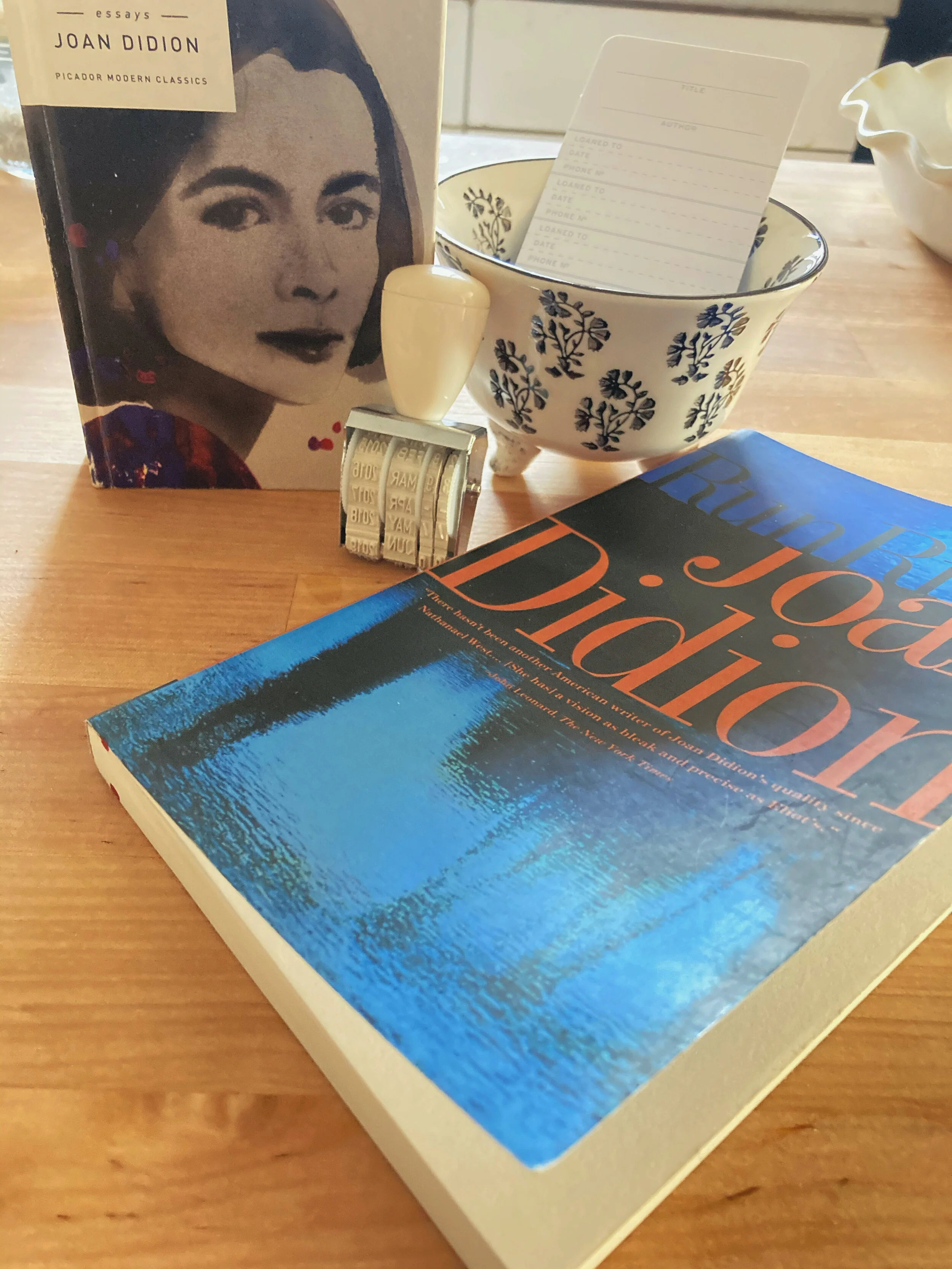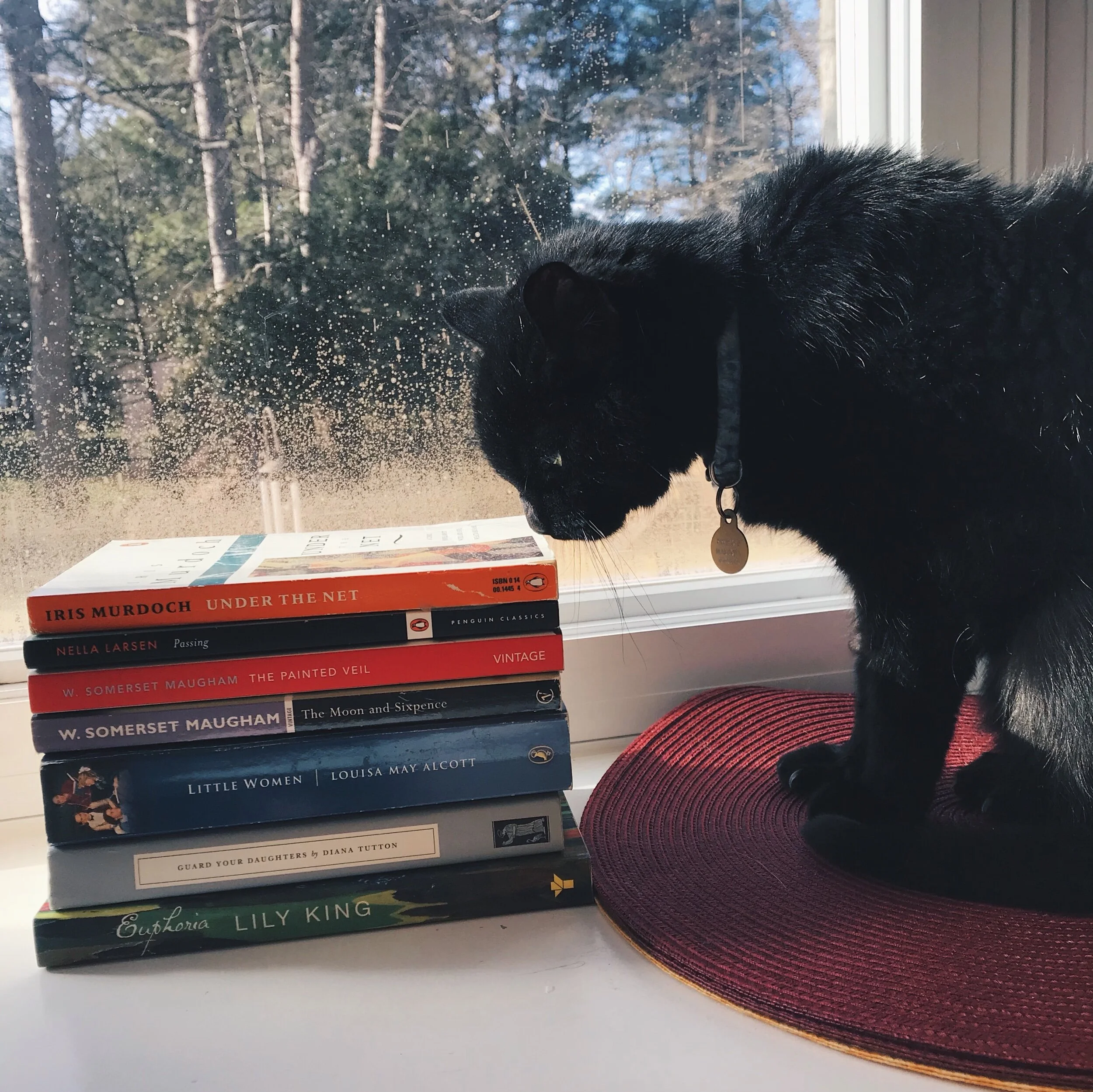What We're Reading, Vol. 21
Photo by G.K. Andrews.
Like April, this month marches on in the same vein as we continue to do our best amidst the global situation. While the world slowly moves towards reopening, those of us able to remain on the side of caution, and keep to our newly minted indoor lives. For those of us working through piles and piles of things to be read, this month brings on new energy, or perhaps simply new desire, as we pick up as many pages as our arms will allow. Re-reads, new reads, multiple reads at once, we're having them all. Thus, this month's installment of What We're Reading will again be in two parts, with the next to arrive in a day or two. As we are prone to follow a good thematic reading list, Part One is dedicated to those of us currently reveling in Non-Fiction, as you'll see in the following timely recommendations.
In case you've missed it, we are also now proud to be working with Bookshop, an independent online bookseller supporting local bookstores. We'll continue adding curated lists over time, but for now you can scroll everything from this list and last month's in one easy place.†
So, without further ado, here's what we're reading this month…
Corinne Elicona
May, so far, has been full of history for me. I began the dual chapter odyssey that was William Manchester’s A World Lit Only By Fire: The Medieval Mind and the Renaissance. Yes, for some reason the chapters in this book are 150 pages long. Although sometimes I found the areas of focus to be a bit dated, as this book came out in the 90’s (referring to conquistadors as heroes and what not *eyeroll*) I was really glad I took the time to read it. One of the things most fascinating to me about Manchester’s research was his focus on how people in medieval Europe thought about the world. For example, one of my favorite lines from the book stated, “After the extant fragments have been fitted together [of the dark ages], the portrait which emerges is a mélange of incessant warfare, corruption, lawlessness, obsession with strange myths, and an almost impenetrable mindlessness.” Often we talk about the oppressive nature of the Roman Catholic Church in the Dark Ages, but rarely do we realize how the discouragement of development affected every aspect of life, including mind, body, and spirit.
After Manchester’s magnum opus, I dove into the treacherous waters of 1917 with Erik Larson’s Dead Wake: The Last Crossing of the Lusitania. I thoroughly enjoyed this read and found that Larson’s tactic of choosing a handful of passengers as medium through which the story was told, was not only successful at illuminating the lesser known facts about the sunken ship, but was also a devastatingly tragic view of the horror that unfolded.
Sarai Seekamp
After taking a break from Tolstoy’s Anna Karenina (because let's be honest: a thousand pages is a lot to sit down and try to digest), I've returned to a personal favorite: Crux by Jean Guerrero. It's a self-labeled cross-border memoir that tells the story of Guerrero's father, focusing not only on their relationship but also on her attempt to understand his mental illness while trying to learn more about herself and her own place in the world. Part of why I keep returning to this particular read is the sensitive nature of the topic and how much of myself and my own relationship with my father I see in the pages. The memoir is structured to mimic the Mayan creation story that tells the story of the Sun and the Moon venturing into the underworld, Xibalba, to save their trapped father. Guerrero is an expert at weaving together journalistic analysis with emotional anecdotes as she digs deeper into the story of her father’s family and the spectacular, mysterious, magical world that is Mexico.
Additionally, I’ve been consulting Latin for Gardeners by Lorraine Harrison, as a resource for my writing. I’m not a great plant mom but I do love learning about plant taxonomy and all the lore that is behind a name. The collection has over 3,000 plants listed as well as gorgeous illustrations and mini-biographies on famous “plant hunters” making it a lovely coffee table pick or resource for your next novel!
Rachel Tay
Last Thursday, the apocalypse* arrived at my door**.
*Mark O’Connell’s Notes from an Apocalypse
**In my mailbox
It was a book that I had pre-ordered several months ago, when The Mortal Plague was hardly on the minds of anyone outside Asia, and the present chaos hasn’t yet been unleashed upon us. Perhaps slightly amused by the potential coincidence, I had thought that an essayistic reportage on preppers, conspiracy theorists, environmentalists — all those who concern themselves excessively with the end times — could be topical, should what was in those days an unnamed virus elude the remedial efforts of Chinese scientists. But the medical authorities abroad then sounded relatively unconcerned, so I was unconcerned too. The book, as I believed when I decided to buy it, was merely about a slow and distant crisis still in the thick of its dawn.
Imagine the Beckettian irony when one apocalypse arrives, neatly typed and bound, at the doorstep of another. Reading O’Connell’s study of humanity’s collapse, and of the people preoccupied with saving themselves from calamity, I could only laugh in recognition — even and especially as his imagination of disaster was utterly horrifying in its accuracy. Certainly, it is a global health emergency that we are currently up against, not (yet) the environmental devastation or nuclear war of which the author writes, but one cannot deny the frays that are appearing, now more than ever, at the edges of civilisation. I do not know if we are at all past the tipping point of disaster, for such is, I suppose, the flaw of our resilience — we adapt and acclimatise without much thought until we engender an uninhabitable world. Nonetheless, the book does end on a less nihilistic note, with an exhortation for us to believe in an alternative to our apocalyptic present. After all, this is the only way for us to envisage a future that does not cumulate in entropy and death, to make for ourselves a possibility in which total annihilation is not its telos. In the midst of an epidemic, I am thus encouraged, oddly enough, by a voice that speaks from one catastrophe to another, a voice that sounds not unlike the Lorax: “Unless someone like you cares a whole awful lot, nothing is going to get better. It’s not.”
Stay tuned for Part 2!
† This post is not sponsored by Bookshop.Org, however as an affiliate we may receive a small percentage from any purchase made through The Attic On Eighth's Bookshop page at no additional cost to you. Thank you for your support!










Reading Naoise Dolan’s Exciting Times and Katie Kitamura’s Intimacies, Rachel Tay explores the unease of moving away from one’s own country and language.